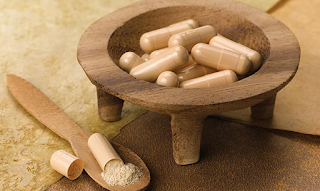A gnarled-looking root could be a natural way of quelling fatigue in cancer patients, according to new research.
Cancer patients who took high doses of American ginseng over a two-month period experienced less fatigue than people who were given a placebo, according to the study, conducted by Mayo Clinic researchers.
The study, presented at the annual meeting of the American Society of Clinical Oncology, included 340 people who were either currently undergoing cancer treatments, or who had just completed cancer treatments. Every day, each person was given either a placebo pill or a pill that contained 2,000 milligrams of American ginseng root.
The researchers found that at the end of eight weeks, the people who were given ginseng had fewer symptoms of fatigue and tiredness compared with the people given the placebo.
"After eight weeks, we saw a 20-point improvement in fatigue in cancer patients, measured on a 100-point, standardized fatigue scale," study researcher Debra Barton, Ph.D., of the Mayo Clinic Cancer Center, said in a statement.
The ginseng given to the patients in the study was pure American ginseng root that had been ground up and put in capsule form. Barton noted that ginseng that is purchased off-the-shelf may be dangerous for people with breast cancer because ethanol is sometimes used to process it, "which can give it estrogen-like properties that may be harmful to breast cancer patients."
The University of Maryland Medical Center pointed out that research has shown other beneficial effects of American ginseng; it's been found to decrease levels of blood sugar in people with Type 2 diabetes, and in a lab study on cells, it's been found to stop colorectal cancer cell growth. Ginseng also seems to decrease cold duration and boost the immune system.
However, the University of Maryland Medical Center warns that people should consult their doctors before taking ginseng as it can cause a number of side effects, from headache and vomiting, to insomnia and high blood pressure. There are also certain people for whom ginseng could be dangerous.
www.huffpost.com












